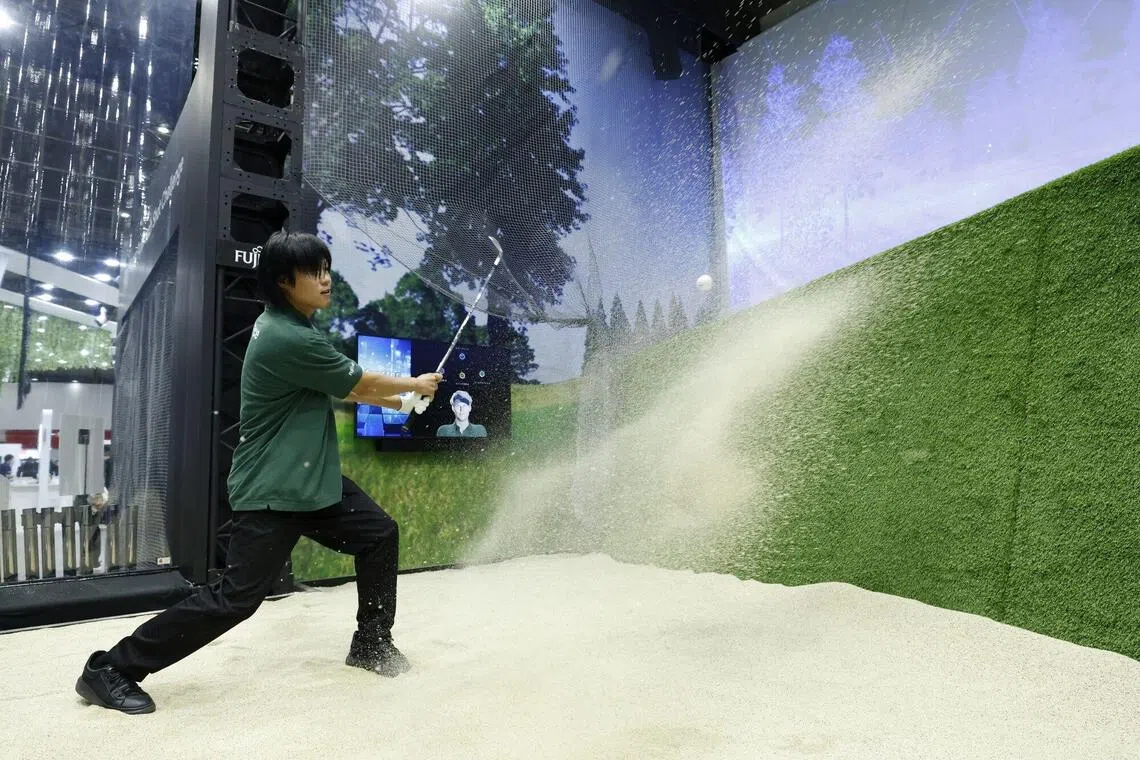For subscribers
AI-fasting – Just what the doctor ordered
We can lose our skills if we rely too much on AI. We need to take some breaks from it.
Sign up now: Get ST's newsletters delivered to your inbox

A booth attendant demonstrating Fujitsu’s Human Motion Analytics data analysis platform and the AI agent at the Combined Exhibition of Advanced Technologies in Chiba, Japan, on Oct 14.
PHOTO: BLOOMBERG
The recent move by the National University Health System (NUHS) and National Healthcare Group (NHG) to introduce “AI-free periods” for doctors may sound surprising. After all, isn’t artificial intelligence (AI) meant to help us work faster and better? But the concern here is real: When we rely too heavily on machines, we risk losing the very skills that make us competent and confident professionals.
A study published in the Lancet Gastroenterology and Hepatology journal in August 2025 found that experienced doctors who had used AI assistance tools to detect pre-cancerous growths in the colon were less adept at doing so without them in a period of three months. This challenges the belief that while AI tools erode the abilities of novices, they do not affect those already skilled.


